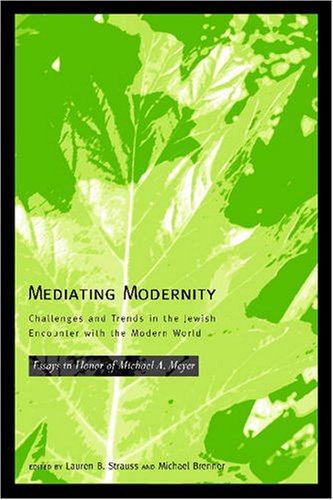

Most ebook files are in PDF format, so you can easily read them using various software such as Foxit Reader or directly on the Google Chrome browser.
Some ebook files are released by publishers in other formats such as .awz, .mobi, .epub, .fb2, etc. You may need to install specific software to read these formats on mobile/PC, such as Calibre.
Please read the tutorial at this link: https://ebookbell.com/faq
We offer FREE conversion to the popular formats you request; however, this may take some time. Therefore, right after payment, please email us, and we will try to provide the service as quickly as possible.
For some exceptional file formats or broken links (if any), please refrain from opening any disputes. Instead, email us first, and we will try to assist within a maximum of 6 hours.
EbookBell Team

4.0
16 reviewsIn Mediating Modernity, contemporary Jewish scholars pay tribute to Michael A. Meyer, scholar of German-Jewish history and the history of Reform Judaism, with a collection of essays that highlight growing diversity within the discipline of Jewish studies. The occasion of Meyer's seventieth birthday has served as motivation for his colleagues Lauren B. Strauss and Michael Brenner to compile this volume, with essays by twenty-four leading academics, representing institutions in five countries.
Mediating Modernity is introduced by an overview of modern Jewish historiography, largely drawing on Meyer's work in that field, delineating important connections between the writing of history and the environment in which it is written. Meyer's own areas of specialization are reflected in essays on Moses Mendelssohn, German-Jewish historiography, the religious and social practices of German Jews, Reform Judaism, and various Jewish communities in America. The volume's field of inquiry is broadened by essays that deal with gender issues, literary analysis, and the historical relationship of Israel and the Palestinians.
Though other volumes have been compiled to honor Jewish historians, Mediating Modernity is unique in the personal and intellectual relationships shared by its contributors and Michael A. Meyer. Scholars of Jewish studies, German history, and religious history will appreciate this timely volume.